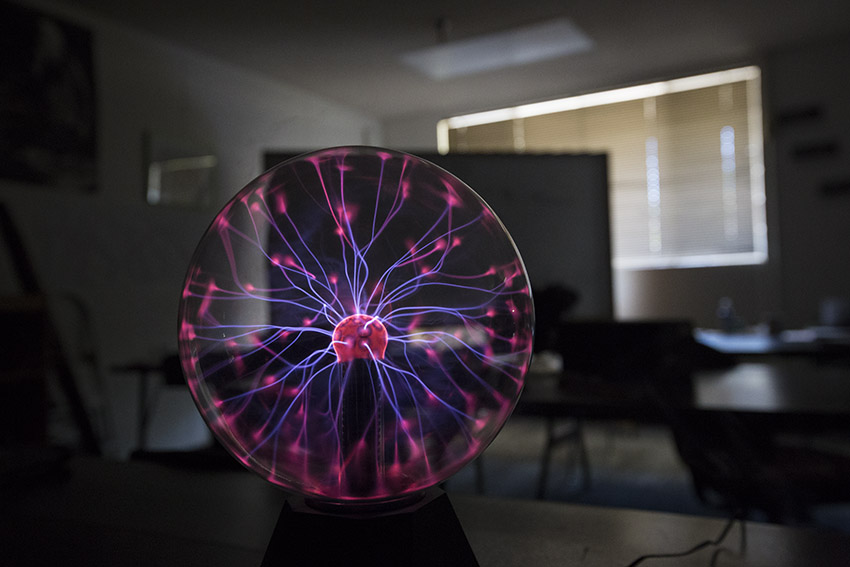
Scott Bucher opens classroom to students interested in science
The physics classroom is unlike any classroom on campus, thanks to teacher Scott Bucher, who enjoys showing his students demonstrations to prove the properties they have learned.
While Bucher may still be relatively new to campus, he is by no means new to teaching physics. Although this is just his second year on campus, Bucher has been teaching science classes for 31 years, previously at Immanuel High School. He currently teaches physics, chemistry and A.P. calculus.
Now Bucher plans on sharing his love of science with other students on campus. He hosted a ‘Physics Open House’ day on April 5, during which students could come into his classroom and test out the multiple different demonstrations and experiments Bucher has.
Bucher’s experiments are most often interactive for the whole class. He believes that science should not always be complicated but also fun and interesting.
“I could teach physics without ever showing a demonstration, but you would lose all of the fun wonder of it,” Bucher said. “The purpose of demonstrations is to capture interest, to make it so that when you are teaching about it, not only do you know the material, but it also makes it fun. Some of these demonstrations don’t have much practical use in real life, but they do because they teach a concept that will be practical in real life.”
In high school, Bucher remembers watching his physics teacher ‘play’ with various experiments and using them to make his students interested in the class. Bucher credits this to one of the reasons he decided to become a physics teacher.
“Part of the reason why I wanted to become a physics teacher was because I just remember my physics teacher in high school just having all sorts of toys,” Bucher said. “But they aren’t just toys, they teach. At every point in the year their demonstrations that go along with it. In science, there is a lot of hard material, but it should be interesting.”

Many students agree with Bucher and believe that the demonstrations help them understand a topic easier. Natalya Hill, ‘18, enjoys the class and the complex material it covers.
“I love the demonstrations Mr. Butcher does,” Hill said. “I like them because he makes a lot of the materials we use by himself, so the labs that we do or the demonstrations he does are always authentic. They give us a visual example of the exact concept we’re learning and they always help me get a better grasp on the topics.”
The material learned in physics can help students in many future careers. Any careers that involve science will likely require a knowledge of physics, as well as careers in the medical and engineering field.
Physics student Jeremiah Sieperda, ‘17, is taking the class this year to hopefully be a step ahead of others in college.
“I decided to take physics this year because I am very interested in science,” Sieperda said. “I also want to be an engineer, so I thought it would be a good idea to try out physics before college. My favorite part of the class is all the demonstrations Mr. Bucher does because they all fun to watch, and interesting to look into. I really don’t have a least favorite part of the class because I feel like everything we do is meaningful and interesting.”
Students who are interested in taking physics should have already taken algebra 2 (now called math two). There is slightly more math required in physics than in other science classes such as chemistry. Bucher recommends that incoming physics students have a grasp of algebra.
For more information, talk with Bucher in room 621.
To read another article check out: COLUMN: ‘No excuse’ commitment fosters success.
This author can be reached via Facebook, Instagram and Twitter.




